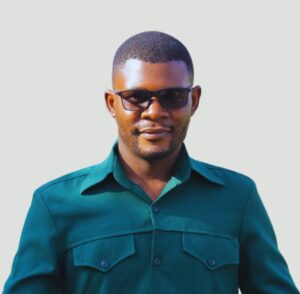By Wabusimba Amiri.
With just days remaining before Donald J. Trump is sworn in as the 47th President of the United States on January 10, 2025, his return to the White House has garnered significant attention globally including in Uganda, who are closely observing his revived “America First” aagenda
His re-election signifies a renewed commitment to populist conservatism, focused on economic self-sufficiency, limited foreign entanglement, and traditional American values.
For Uganda and other African nations, Trump’s second term presents both opportunities and challenges, with a governance style that favors pragmatic partnerships over foreign assistance and emphasizes U.S. domestic priorities over international interventions.
At the heart of Trump’s administration is a strong reassertion of the “America First” philosophy, which resonates with many of his supporters.
This approach prioritizes American jobs, manufacturing, and infrastructure, significantly shifting away from foreign aid programs that were common in previous administrations.
For Uganda, a country historically dependent on U.S. support in sectors such as health, education, and infrastructure, this shift could mean a change in how these engagements are approached.
Advertisement:

Trump is likely to focus more on trade and investment, where both countries benefit economically, instead of providing traditional aid.
Uganda, in this scenario, will need to adjust to a more reciprocal relationship that favors economic exchanges over financial aid.
Trump’s foreign policy, notably non-interventionist, marks a departure from U.S. involvement in conflicts and issues unrelated to national security or economic interests.
This could lead to a more hands-off approach in Uganda, potentially reducing the sanctions and interventions used by previous administrations to address human rights abuses or governance issues.
For some Ugandans sanctioned by the U.S., Trump’s return to office is seen as a potential reprieve. Uganda’s Chief of Defense Forces (CDF) Gen.
Muhoozi Kainerugabe tweeted optimistically: “I hear from good sources that when the Muchwezi, Donald Trump, takes power in the United States, one of his first measures will be to remove all sanctions against Uganda!”. This sentiment reflects hope among some Ugandans for relief from sanctions, although achieving this will likely require complex diplomatic negotiations and court procedure which seems to be impossible.
Trump’s conservative values resonate with some Ugandan leaders, fostering potential for a more harmonious cultural exchange.
Unlike the Obama and Biden administrations, which tied foreign aid to LGBTQ+ rights, Trump’s first term avoided such conditionality, allowing for respectful engagement on cultural and social issues.
His emphasis on religious freedom, parental rights, and traditional family structures aligns with many Ugandan perspectives, strengthening common ground.
Trump’s focus on immigration, sovereignty, and border security though largely domestic could influence Uganda to adopt similar stances, particularly in trade agreements and national governance.
His commitment to national defense and self-sufficiency may also prompt Uganda to reassess its foreign relations, emphasizing mutual respect and sovereignty in diplomatic engagements.
Uganda could benefit from Trump’s business-oriented diplomacy, which emphasizes partnerships with clear returns on investment.
By positioning itself as a reliable trade partner, Uganda may attract U.S. investments in key growth sectors, shifting from aid dependency to sustainable, business-focused collaboration.
Advertisement:

However, the complexity of U.S. sanctions and foreign aid programs requires strategic diplomacy to align Uganda’s policies with American interests.
Ugandan leaders must balance domestic priorities with the realities of U.S. foreign policy to capitalize on these
The re-election of Trump brings a renewed focus on self-reliance, fiscal conservatism, and a more transactional approach to international relations.
For Uganda, this means a potential shift toward economic collaboration and a reduced emphasis on foreign aid.
However, navigating the intricacies of U.S. policies will require careful diplomacy to ensure a productive partnership that respects both countries’ priorities, particularly as Uganda transitions toward a more self-sufficient economic model.
The future of U.S.-Uganda relations under Trump’s leadership will likely be defined by a balance of pragmatism, mutual respect, and strategic growth.

Author is a diplomatic Scholar, Journalist, political analyst and Human Right activist.
Tel: +56775103895 email: Wabusimbaa@gmail.comTop of Form
Have An Advert Or Article You Want Us To Publish? Whatsapp: +256786288379 or email binocularugnews@gmail.com
